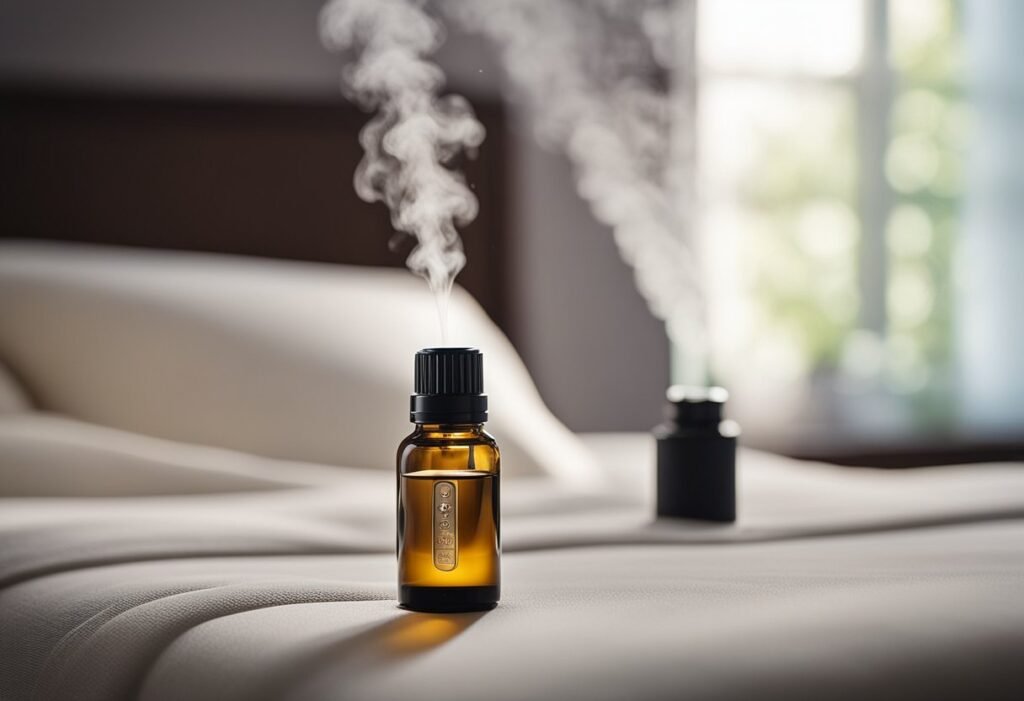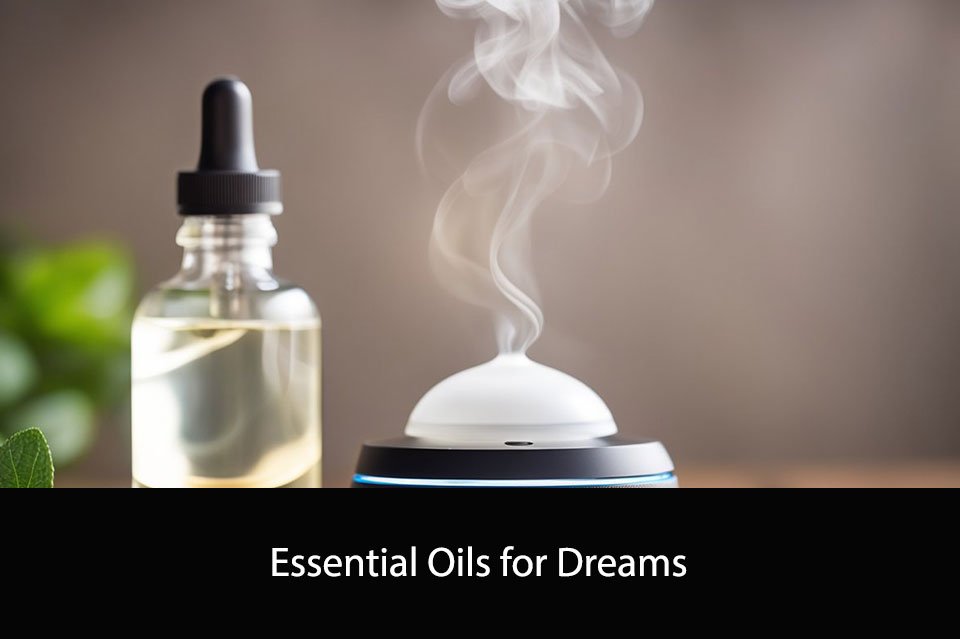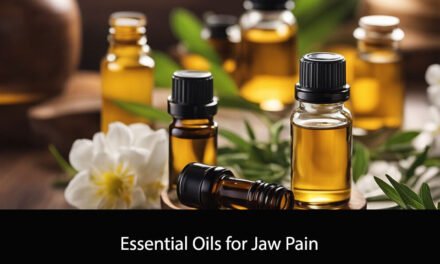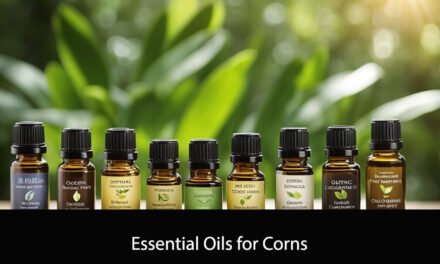Essential oils have been used for centuries for their therapeutic properties. They are extracted from plants and are known to have a range of benefits, from reducing stress to improving sleep quality. In recent years, essential oils have gained popularity for their ability to enhance dreams.
Dreams are an essential part of our sleep cycle, and they play a crucial role in our mental and emotional well-being. However, not everyone experiences vivid or memorable dreams. This is where essential oils come in. By incorporating certain essential oils into your bedtime routine, you can increase the likelihood of having more vivid and memorable dreams.
Some of the most popular essential oils for dreams include lavender, peppermint, chamomile, and ylang-ylang. Each of these oils has unique properties that can help to calm the mind, reduce anxiety, and promote relaxation. In the following sections, we will explore the benefits of these essential oils for dreams and how to use them effectively.
Understanding Dreams

Dreams are a natural and vital part of our lives. They occur during the rapid eye movement (REM) stage of sleep and can last anywhere from a few seconds to several minutes. Dreams are often a reflection of our thoughts, emotions, and experiences from our waking life.
While the exact purpose of dreaming is still unknown, many experts believe that dreams serve as a way for our brains to process and consolidate memories, emotions, and information. Dreams can also be influenced by our subconscious mind, which can reveal hidden desires, fears, and concerns.
It’s important to note that not all dreams are created equal. Some dreams may be vivid, while others may be vague or forgotten entirely. Additionally, some dreams may be pleasant and enjoyable, while others may be unsettling or even terrifying.
Overall, understanding dreams can provide us with valuable insight into our inner selves and can help us better navigate our waking lives. By exploring the meanings behind our dreams, we can gain a deeper understanding of ourselves and our emotions.
Essential Oils: An Overview
Essential oils have been used for centuries for their various therapeutic benefits. These oils are derived from plants and are highly concentrated, making them potent and effective. When it comes to dreaming, essential oils can be a powerful tool to enhance the quality of your sleep and promote vivid dreams.
There are many different essential oils that can be used for dreaming, each with its own unique properties. Some of the most popular oils for dreaming include lavender, chamomile, and peppermint. Lavender is known for its calming properties and can help promote relaxation and a peaceful sleep. Chamomile is also great for promoting relaxation and can help reduce anxiety and stress. Peppermint, on the other hand, can help promote mental clarity and focus, making it a great oil to use during the day to prepare for a lucid dream.
When using essential oils for dreaming, it’s important to use high-quality oils and to dilute them properly. Essential oils should never be applied directly to the skin, as they can be irritating and even cause burns. Instead, they should be diluted with a carrier oil, such as coconut oil or almond oil, before being applied topically or used in a diffuser.
In addition to promoting relaxation and mental clarity, essential oils can also help promote vivid and lucid dreams. Some oils, such as clary sage and mugwort, are known for their ability to enhance dream recall and promote lucid dreaming. When used in combination with other techniques, such as reality checks and journaling, essential oils can be a powerful tool for exploring the world of lucid dreaming.
Overall, essential oils can be a great addition to your sleep and dream routine. With their many therapeutic benefits, they can help promote relaxation, mental clarity, and vivid dreams. Just be sure to use high-quality oils and to dilute them properly to avoid any adverse reactions.
How Essential Oils Influence Dreams

Essential oils have been used for centuries to promote relaxation, reduce stress, and improve sleep quality. In recent years, there has been growing interest in the use of essential oils to influence dreams. Here, we explore the scientific evidence and personal experiences that suggest essential oils may have an impact on our dreams.
Scientific Evidence
While there is limited scientific research on the effects of essential oils on dreams, some studies have suggested that certain oils may have an influence. For example, a study published in the Journal of Korean Biological Nursing Science found that inhaling lavender essential oil before bedtime increased the amount of deep sleep and reduced the amount of time spent awake during the night. Another study published in the Journal of Alternative and Complementary Medicine found that inhaling a blend of essential oils, including lavender, ylang-ylang, and bergamot, improved sleep quality and reduced symptoms of anxiety and depression in cancer patients.
Personal Experiences
Many people have reported experiencing vivid, memorable dreams after using certain essential oils. Some of the most commonly used oils for this purpose include lavender, chamomile, and peppermint. Lavender, in particular, is known for its calming and relaxing properties, which may help to promote more peaceful dreams. Chamomile is also believed to have a calming effect and may be useful for those who suffer from anxiety or stress-related dreams. Peppermint, on the other hand, is said to promote more vivid and memorable dreams.
Overall, while the scientific evidence is limited, many people have reported positive experiences using essential oils to influence their dreams. As with any natural remedy, it is important to use caution and consult with a healthcare professional before using essential oils, especially if you have any underlying health conditions or are taking medication.
Top Essential Oils for Dreams
When it comes to essential oils for promoting restful sleep and vivid dreams, there are several options to choose from. Here are some of the top essential oils for dreams:
Lavender
Lavender essential oil is a popular choice for promoting relaxation and calming the mind. Its soothing aroma can help reduce stress and anxiety, making it easier to fall asleep and stay asleep. In addition, lavender oil has been shown to improve the quality of sleep, leading to more restful and rejuvenating nights.
Chamomile
Chamomile essential oil is another great option for promoting relaxation and restful sleep. Its gentle, floral scent can help calm the mind and ease tension in the body. Chamomile oil is also known for its anti-inflammatory properties, which can help reduce pain and discomfort that may be keeping you up at night.
Bergamot
Bergamot essential oil is a citrus oil that is known for its uplifting and mood-boosting properties. While it may seem counterintuitive to use a stimulating oil for sleep, bergamot can actually help reduce anxiety and promote relaxation. Its bright, refreshing scent can help clear the mind and create a peaceful atmosphere for sleep.
Sandalwood
Sandalwood essential oil has a warm, woody aroma that can help promote relaxation and calmness. It is often used in meditation and spiritual practices, as it is believed to have grounding and centering properties. Sandalwood oil can also help reduce anxiety and promote restful sleep.
Ylang Ylang
Ylang ylang essential oil has a sweet, floral scent that is often used for relaxation and stress relief. It can help reduce anxiety and promote feelings of calmness and tranquility. Ylang ylang oil is also known for its aphrodisiac properties, which may contribute to more vivid and memorable dreams.
Overall, these essential oils can be powerful tools for promoting restful sleep and vivid dreams. Experiment with different oils and blends to find the ones that work best for you.
How to Use Essential Oils for Dreams

If you’re looking to use essential oils to enhance your dream experience, there are a few methods you can try. Here are three ways to use essential oils for dreams:
Aromatherapy
One of the most common ways to use essential oils for dreams is through aromatherapy. You can add a few drops of your chosen essential oil to a diffuser or humidifier and let it fill your room with the scent. Alternatively, you can add a drop or two to a tissue or cotton ball and place it near your pillow.
Some of the best essential oils for aromatherapy include lavender, chamomile, and sandalwood. These oils are known for their calming properties and can help you relax and fall asleep more easily.
Topical Application
Another way to use essential oils for dreams is through topical application. You can mix a few drops of your chosen essential oil with a carrier oil, such as coconut or jojoba oil, and apply it to your skin before bed. Focus on areas such as your temples, wrists, or neck.
Some of the best essential oils for topical application include peppermint, eucalyptus, and frankincense. These oils are known for their invigorating properties and can help you feel more alert and focused during your dreams.
Ingestion
While not as common as aromatherapy or topical application, some people choose to ingest essential oils to enhance their dream experience. However, it’s important to note that ingesting essential oils can be dangerous and should only be done under the guidance of a healthcare professional.
If you do decide to ingest essential oils, make sure you choose high-quality, food-grade oils and follow the recommended dosage carefully. Some of the best essential oils for ingestion include lemon, peppermint, and ginger. These oils are known for their digestive and immune-boosting properties and can help you feel more energized and focused during your dreams.
Remember, everyone’s body chemistry is different, so what works for one person may not work for another. It’s important to experiment with different essential oils and methods to find what works best for you.
Safety Precautions
When using essential oils for dreams, it is important to take certain safety precautions to avoid any potential adverse effects. Here are some important things to keep in mind:
- Always dilute essential oils before use. Essential oils are highly concentrated and can cause skin irritation or allergic reactions if applied directly to the skin. We recommend diluting essential oils with a carrier oil such as coconut oil, almond oil, or jojoba oil.
- Do not ingest essential oils. Essential oils are not meant to be ingested and can be toxic if consumed. If you want to use essential oils internally, be sure to consult with a qualified aromatherapist or healthcare professional first.
- Keep essential oils out of reach of children and pets. Essential oils can be harmful if ingested or applied topically in excessive amounts. Always store essential oils in a safe place where children and pets cannot access them.
- Do not use essential oils if you are pregnant or nursing. Some essential oils can be harmful to developing fetuses or infants. If you are pregnant or nursing, be sure to consult with a qualified aromatherapist or healthcare professional before using essential oils.
- Avoid using essential oils if you have sensitive skin or allergies. Some essential oils can cause skin irritation or allergic reactions in certain individuals. If you have sensitive skin or allergies, be sure to perform a patch test before using essential oils and discontinue use if any adverse reactions occur.
By following these safety precautions, you can enjoy the benefits of essential oils for dreams without any unnecessary risks.
Conclusion
In conclusion, essential oils can be a helpful tool for those looking to improve their dream quality. While research on the topic is limited, some essential oils have been shown to have calming and relaxing effects that can promote better sleep and more vivid dreams.
It’s important to note that essential oils should be used in moderation and with caution, as they can have adverse effects if used improperly. It’s also important to consult with a healthcare professional before using essential oils, especially if you have any pre-existing medical conditions or are taking medication.
When using essential oils for dreams, it’s best to experiment with different oils and find what works best for you. Some popular choices include lavender, chamomile, and bergamot. It’s also important to use high-quality, pure essential oils to ensure the best results.
Overall, while essential oils may not be a cure-all for dream-related issues, they can be a helpful addition to a healthy sleep routine. With proper use and caution, essential oils can help promote relaxation, reduce stress, and improve the overall quality of your dreams.
Frequently Asked Questions

What is lucid dreaming?
Lucid dreaming is a state where you are aware that you are dreaming and can control the dream to some extent. It is a fascinating and exciting experience for many people.
What essential oils help with dreams?
There are many essential oils that can help with dreams, including lavender, chamomile, peppermint, and sandalwood. These oils can help you relax, fall asleep faster, and have more vivid dreams.
What oil is good for lucid dreaming?
Peppermint oil is an excellent essential oil for lucid dreaming. It can help you stay alert and focused while you are in a dream state, making it easier to control your dreams.
Can essential oils cause vivid dreams?
Yes, some essential oils can cause vivid dreams. Oils like lavender and chamomile are known to promote relaxation and can lead to more vivid dreams.
Does lavender make you have weird dreams?
No, lavender does not make you have weird dreams. It is a calming essential oil that can help you relax and fall asleep faster. However, it can lead to more vivid dreams.
What is the effect of Young Living essential oils on dreams?
Young Living essential oils can have a positive effect on dreams. They offer a wide range of essential oils that can help you relax, sleep better, and have more vivid dreams. However, it is important to use them properly and follow the recommended guidelines.





